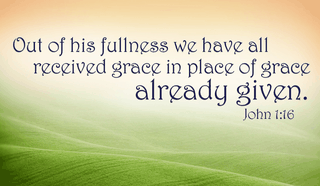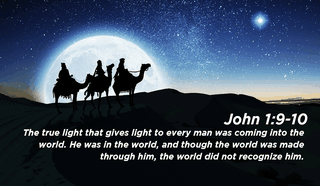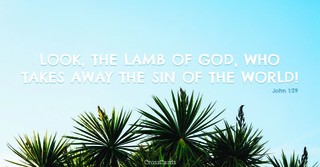Change Translation
- Recent Translations
- All Translations
John 1:19
Share
Listen to John 1:19
Settings
Scripture Text Size
19
When Jews from Jerusalem sent a group of priests and officials to ask John who he was, he was completely honest.
John 1:19 In-Context
17
We got the basics from Moses, and then this exuberant giving and receiving, This endless knowing and understanding - all this came through Jesus, the Messiah.
18
No one has ever seen God, not so much as a glimpse. This one-of-a-kind God-Expression, who exists at the very heart of the Father, has made him plain as day. Thunder in the Desert
19
When Jews from Jerusalem sent a group of priests and officials to ask John who he was, he was completely honest.
20
He didn't evade the question. He told the plain truth: "I am not the Messiah."
21
They pressed him, "Who, then? Elijah?" "I am not." "The Prophet?" "No."
Published by permission. Originally published by NavPress in English as THE MESSAGE: The Bible in Contemporary Language copyright 2002 by Eugene Peterson. All rights reserved.


